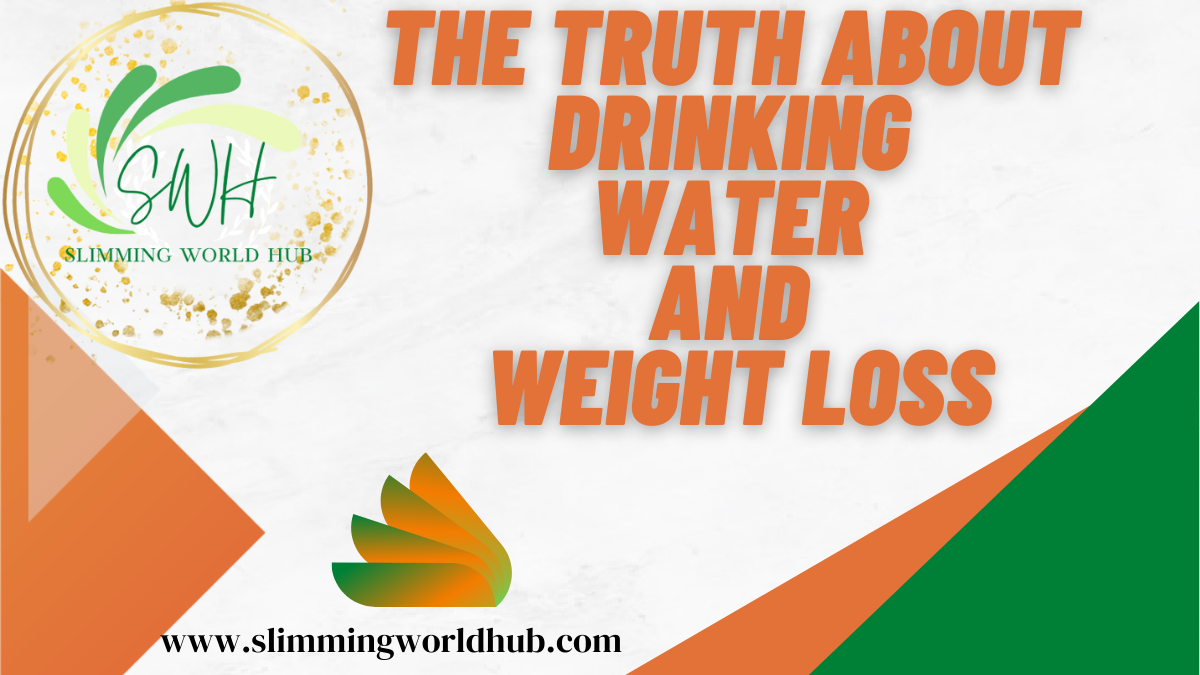The Truth About Drinking Water

If you’ve ever tried to lose weight, you’ve probably been told that drinking water helps—but does it? You’re about to find out! This article will look at the many different ways drinking water can affect your weight loss. Then, we’ll look at how drinking enough water can make sure you don’t develop unwanted pounds in the first place!
How much water should I drink every day?
You should drink enough water to satisfy your thirst, but not so much that you dilute your blood to below normal levels. (When your blood is cut, there’s more fluid than necessary in your body.) Several calculators online will help you determine how much water is suitable for you. Alternatively, count how many glasses you drink per day, make sure it adds up to at least eight glasses per day (64 ounces), and then don’t feel bad if you accidentally go over—you’re likely making up for previous days when you didn’t get enough fluids. Also, stay well-hydrated on workout days; exercise creates additional fluid loss through sweat.
How can I make sure I drink enough water when I’m busy?
Just a few extra glasses of water per day can help you lose weight. Drinking water may even help improve your metabolism by reducing bloating, constipation, muscle cramps, and fatigue. If you’re working long hours or notice that your muscles are achy more often than not, getting enough water in your diet can help turn things around. Staying adequately hydrated is especially important as we age; drink plenty of H2O (3/4 of an ounce for every pound you weigh) every day.
Will plain water help me lose weight faster than flavored drinks?
There are many mixed messages regarding drinking water for weight loss. Most of us have heard that we should drink more water to help lose weight, but you’ll find countless articles from both sides of the argument if you search online. What is true? Is drinking plain water better for weight loss than flavored varieties? Are there specific types of flavored drinks we should be consuming? The following information will answer these questions and give a few tips to help you lose those unwanted pounds.
Does it matter what time of day I drink my water to reach my goal faster?
Contrary to popular belief, there is no evidence that drinking water earlier in the day will help you lose weight any faster. The optimal time to drink water is often when you’re thirsty. If you’re trying to get rid of those last few pounds, pay attention to what your body wants—you might be surprised. You can also try adding a squeeze of lemon or lime juice to your water if it tastes bland. It’s essential to stay hydrated throughout the day, so don’t forget to keep sipping!
Can a cold or hot temperatures affect how well my body absorbs the water I’m consuming?
This is another question I get asked a lot, mostly from people who want to consume more water. The first thing to know is that regardless of how cold or hot your water is, there’s only one way for your body to absorb it—and that’s through your stomach.
Can sparkling mineral waters be as healthy as still waters when consumed in large quantities daily (more than two liters)?
Research suggests that carbonated water can promote weight loss. Carbonated water may aid in weight loss by decreasing how much food you eat at meals, according to a Japanese study published in 2005 in the journal Appetite. After drinking carbonated water, study participants reported feeling fuller than after drinking still water, which helped them eat less overall.
All beverages count toward my daily hydration requirement, including juice, tea, coffee, etc.?
No. The Institute of Medicine recommends that most women consume about 91 ounces (2.7 liters) of water a day. This amount does not include beverages other than water, such as juice, coffee, tea, or soda. If you drink these beverages, it’s essential to account for them in your total fluid intake. For example, if you have one cup of coffee with breakfast and one glass of orange juice at lunch, add 12 ounces (0.35 liter) to your daily total. That would bring your total fluid intake to 103 ounces (2.9 liters).
What about alcohol – does that count toward my daily hydration requirement too?
You could say that alcohol is not a no-calorie drink, but it’s also not necessarily a liquid form of fat. Alcohol has seven calories per gram, about as much as protein, so technically it does have calories. But your body processes alcohol differently than it does food, using energy (calories) to do so—about 7% of all consumed alcohol is converted into heat energy rather than being absorbed for nutritional purposes.
Leave a Reply